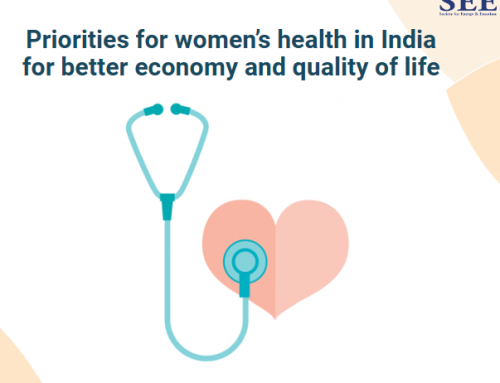Effectiveness of online sessions for both assessments and intervention
At Wellness Space, several therapists have offline and online therapeutic intervention experiences. Over the past three years, since the COVID-19 outbreak, our therapists (located in India, Japan, Singapore)[i] have worked with clients across the world during online therapy work[ii]. Each module (including past life regression) of our training has also been delivered effectively online. We have (See Point D below) also assessed the effectiveness of the outcomes (changes in well-being, anxiety & depression, sleep quality and trauma assessment) and validated that the interventions across therapists and mode of delivery (online vs offline or face-to-face) are effective.
Some specific points are highlighted below.
A) Recent publication/work using Regression Therapy ONLINE intervention:
Our recently published work (funded by the EARTh Association of Regression Therapy) in the International Journal of Regression Therapy (Project Completion Report: Regression Therapy for generalized anxiety and associated depression) included online interventions. An excerpt from the final report is highlighted below.
“Conceptualisation and Modification of the Study
The study was conceptualised and modified several times with a clear focus on assessing and addressing generalised anxiety disorder. The original approach of the researchers (pre-COVID-19) involved conducting regression therapy sessions and training in self-hypnosis on a face-to-face basis. However, within a context including growing levels of societal anxiety and depression, a variety of constraints associated with COVID-19, and a need to commence the project, the researchers decided that adaptations to the original intervention methods were necessary. The researchers, therefore, moved towards the utilisation of virtual therapeutic interventions and training. Online individual therapy and online versions of training were offered, and individuals seeking support could choose individual therapy or simple self-regulation training involving the self-hypnosis protocol. Of importance to note is that research in Cognitive Behavioural Therapy (CBT) indicated that the outcomes from online and face-to-face therapeutic interventions generally produce equivalent results (Axelsson et al., 2020; Carlbring et al., 2018).”
Another EARTh-funded “Healing the Child Within” project involving several therapists was also completed online. The outcomes (not yet published, however, shared with EARTh Research Committee) also show statistically significant improvement in several mental health parameters after 4 and 8 sessions of Regression Therapy.
B) Additional publications (not intervention but assessment done ONLINE) by our team.
The work on the publications below in respectable journals (Scopus or Pubmed indexed) was also done online.
- Predicting Adverse Childhood Experiences via Machine Learning Ensembles
- A pilot study to understand the presence of ACE in adults with post-traumatic stress disorders at a well-being centre in India
- We have five more publications in the pipeline (or still need to be published).
C) Example: ONLINE Trauma Research on Reconsolidation of Traumatic Memories
Recent research on trauma (Post-Traumatic Stress Disorder/PTSD and CPTSD) in the UK (coincidently, using the same protocol-RTM/Reconsolidation of Traumatic Memories that we use) moved the entire work online. This was done since while the trial was continuing, Covid-19 happened and that required the trial to be paused for six weeks. The therapy providers incorporated the online therapy delivery processes during the pause and revised the plan for online delivery[iii]. The published research also validates the online approach we have taken. Our research also has the online work’s relevant IEC (Ethics) committee approval. Therefore, work as complex as “Complex PTSD” has also been done online, and the outcomes are satisfactory.
In short, several published research outcomes (globally) highlight the effectiveness of online therapy interventions beyond the example highlighted above.
D) Analysis by therapist and ONLINE vs face-to-face (OFFLINE)
We have analyzed the effectiveness of several outcomes (See below table for a high-level summary) and confirmed the effectiveness of both online and offline therapeutic interventions, including CPTSD.
| Mode of intervention | Statistically significant improvement? (Y/N)* |
| Online | Y |
| Offline | Y |
| Therapist A (only offline work included) | Y |
| Therapist B (only online work) | Y |
Note: *Applicable to WHO-5 Well-being index, GAD-7 (Anxiety), MDI (Depression) and ISI (Sleep Quality) assessment before and after the intervention using the student’s t-test. Detailed data is not indicated since it is being prepared for potential publication.
Interesting insights:
Pre-COVID-19 research by Ryan Baird Thompson found online therapy to be effective and roughly equivalent to traditional therapy[iv]. Excerpts from the abstract are highlighted below:
“Results indicated that clients were predominantly satisfied with online therapy. Therapists, however, had misgivings about the online therapy environment.”
Summary:
Ample evidence highlights the shift of mental health interventions and assessments to online mode. At the same time, if there is an option to do face-to-face work, therapists and clients prefer that. However, not having a face-to-face option is not a limitation anymore, given the effectiveness and expandability of the online work.
Additional readings:
- Online therapy is here to stay by APA.
- Online Talk Therapy Works as Well as an In-Person Session, a New Study Shows
References:
[i] Dr Meenakshi, basd out of Japan, has done more than 1200 documented sessions (all online)
[ii] More than 80% of our 6500 documented sessions since early 2021 are online.
[iii] Sturt, J., Rogers, R., Armour, C., Cameron, D., de Rijk, L., Fiorentino, F., … & Greenberg, N. (2022). Reconsolidation of Traumatic Memories Protocol compared to Trauma Focussed Cognitive Behaviour Therapy for posttraumatic stress disorder in UK military veterans: a randomised controlled feasibility trial.
[iv] Thompson, Ryan Baird, “Psychology at a Distance: Examining the Efficacy of Online Therapy” (2016). University Honors Theses. Paper 285. https://doi.org/10.15760/honors.292








Leave A Comment